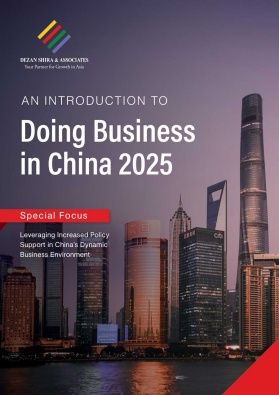China-Ethiopia Trade, Investment, and Opportunities
China and Ethiopia have built a robust economic relationship driven by strategic cooperation, expanding trade, and fast-growing investment. With Ethiopia emerging as a key partner in Africa, this article explores the bilateral progress, major sectors of collaboration, and future opportunities under the Belt and Road framework.
China and Ethiopia established diplomatic relations on November 24, 1970. Since then, their bilateral relationship has steadily grown, evolving into a comprehensive partnership marked by cooperation in multiple sectors. In October 2023, the two countries elevated their ties to an “all-weather strategic partnership,” underscoring the depth and resilience of their collaboration.
Economic and technical cooperation between China and Ethiopia began as early as 1971, supported by a series of bilateral agreements on trade and development. Over the decades, China has financed and built a number of key infrastructure projects across Ethiopia, including highways, power stations, veterinary clinics, and water supply systems. This cooperation continues to deepen, providing a strong foundation for trade and investment.
China-Ethiopia trade
China and Ethiopia have witnessed rapid growth in bilateral trade since the mid-1990s. In 2002, two-way trade surpassed US$100 million for the first time. By 2008, the figure had climbed past US$1 billion, doubling again to US$2 billion in 2013 and reaching US$3 billion in 2014. As of 2024, bilateral trade in goods reached a record US$4.90 billion (RMB 35.53 billion), representing a 17.5 percent year-on-year increase.
According to Chinese customs data, China exported goods worth US$4.34 billion (RMB 31.44 billion) to Ethiopia in 2024, marking a 21.4 percent increase compared to the previous year. In contrast, imports from Ethiopia declined by 6 percent to US$564 million (RMB 4.09 billion), resulting in a trade surplus of US$3.77 billion (RMB 27.35 billion) in China’s favor.
China’s major exports to Ethiopia include light industrial goods, high-tech products, machinery, textiles, and pharmaceutical and chemical products. Ethiopia’s key exports to China consist of sesame seeds, frankincense, myrrh, leather, cotton, and coffee, with Ethiopia being China’s top source of sesame imports.
China is not only Ethiopia’s largest trading partner but also its leading source of investment and engineering contracts, highlighting the multifaceted nature of their economic engagement.
| China-Ethiopia Bilateral Trade, 2019-2024 | ||||||
| Year | Import & export (US$, billion) | YoY (%) | China’s export (US$, billion) | YoY (%) | China’s import (US$, billion) | YoY (%) |
| 2019 | 2.67 | -7.3 | 2.32 | -8.2 | 0.34 | -0.4 |
| 2020 | 2.57 | -3.6 | 2.23 | -3.9 | 0.34 | -1.6 |
| 2021 | 2.66 | 3.3 | 2.29 | 2.6 | 0.37 | 8.1 |
| 2022 | 2.64 | 0.8 | 2.18 | -4.7 | 0.45 | 24.0 |
| 2023 | 3.02 | 14.7 | 2.59 | 18.5 | 0.44 | -4.0 |
| 2024 | 3.55 | 17.5 | 3.14 | 21.4 | 0.41 | -6.0 |
Source: General Administration of Customs of China (GACC)
| Top China Imports from Ethiopia in 2024 | |
| Category | Value (US$, million) |
| Oil seeds and oleaginous fruits; miscellaneous grains, seeds and fruit; industrial or medicinal plants; straw and fodder | 191.5 |
| Coffee, tea, maté and spices | 102.5 |
| Edible vegetables and certain roots and tubers | 50.6 |
| Cotton | 16.9 |
| Ores, slag and ash | 14.0 |
Source: ITC Trade Map
| Top China Exports to Ethiopia in 2024 | |
| Category | Value (US$, million) |
| Electrical machinery and equipment and parts thereof; sound recorders and reproducers, television image and sound recorders and reproducers, and parts and accessories of such articles | 752.7 |
| Nuclear reactors, boilers, machinery, and mechanical appliances; parts thereof | 677.90 |
| Plastics and articles thereof | 179.9 |
| Vehicles other than railway or tramway rolling stock, and parts and accessories thereof | 167.0 |
| Articles of iron or steel | 137.6 |
Source: ITC Trade Map
China-Ethiopia investment
Chinese investment in Ethiopia has grown rapidly in both volume and scope, making China the country’s largest source of foreign capital. According to China’s Ministry of Commerce, direct investment flows from China to Ethiopia reached US$138 million (RMB 1 billion) in 2023. By the end of that year, China’s cumulative stock of direct investment in Ethiopia stood at US$3.55 billion (RMB 25.74 billion).
Data from the Ethiopian Investment Commission further highlight China’s central role in the country’s investment landscape. As of the end of July 2024, a total of 2,100 Chinese wholly owned or joint venture projects had been approved—more than from any other country. These projects span a wide array of industries, including manufacturing, energy, construction, telecommunications, and pharmaceuticals.
Notable Chinese-invested projects in Ethiopia include:
- POLY-GCL Petroleum & Natural Gas Project – a major energy initiative
- Dongfang Industrial Park – invested by Jiangsu Yongyuan Investment Co., Ltd.
- Dires Ceramic Plc. – backed by Rongwei Industrial Investment
- Ethiopian Wool Textile and Dyeing Project – by Jiangsu Sunshine Investment
- Kindad (Ethiopia) Flax Co., Ltd. – by Zhejiang Jinyuan Linen Investment
- Wuxi No.1 Cotton Textile Factory’s Ethiopian Production Base
- Huajian International Light Industry City – a large-scale manufacturing cluster
- Hansheng Glass Factory – developed by China Geo-Engineering Corporation
- Transsion Holdings Mobile Assembly Plant – supporting Ethiopia’s tech ecosystem
- Sansheng Pharmaceuticals and Humanwell Healthcare – expanding Ethiopia’s life sciences sector
This diverse portfolio underscores China’s long-term commitment to supporting Ethiopia’s industrialization and economic transformation through capital investment, technology transfer, and infrastructure development.
|
China Investment in Ethiopia, 2019-2023 |
||
| Year | Annual flow (US$, million) | Year-end stock (US$, million) |
| 2019 | 375.30 | 2558.87 |
| 2020 | 310.80 | 2992.80 |
| 2021 | -90.39 | 2810.90 |
| 2022 | -139.17 | 2620.32 |
| 2023 | 100.38 | 2574.37 |
Source: Ministry of Commerce of China, National Bureau of Statistics, and State Administration of Foreign Exchange
Ethiopia’s investment appeal
As a major economy in East Africa, Ethiopia offers a compelling mix of natural, demographic, and economic advantages that make it an increasingly attractive destination for foreign investment. Known as the “Water Tower of East Africa,” Ethiopia benefits from abundant water resources due to its highland geography. With elevations ranging from 148 meters below sea level to 4,620 meters above, the country is home to 18 distinct ecological zones and a rich array of biodiversity.
Ethiopia is Africa’s second most populous country, providing a large and youthful labor force alongside a growing domestic market. The capital, Addis Ababa, situated at a high elevation, enjoys a mild year-round climate with an average temperature of 16°C—ideal for living and working.
The government’s pro-investment policies further enhance Ethiopia’s appeal. Through a series of legal reforms—including five revisions to its investment laws—Ethiopia has lowered barriers to entry, expanded the list of permitted sectors, and offered significant tax incentives. Foreign investors benefit from robust legal protections and streamlined administrative services. Addis Ababa, in particular, has implemented special preferential policies and strategic plans to attract international capital and was named one of Africa’s most promising cities for foreign direct investment by the African Union in 2012.
China-Ethiopia policy frameworks and strategic cooperation
China and Ethiopia have built a strong policy foundation for investment and economic collaboration. In 1998, the two governments signed the Agreement on the Reciprocal Promotion and Protection of Investments, ensuring legal safeguards for investors from both sides.
Their cooperation deepened under the Belt and Road Initiative (BRI). In September 2018, China and Ethiopia signed a Memorandum of Understanding on Joint Promotion of the Silk Road Economic Belt and the 21st Century Maritime Silk Road, followed by a Cooperation Plan in April 2019. These agreements have paved the way for large-scale cooperation in infrastructure, trade facilitation, and industrial development.
The strategic alignment of policies and mutual commitment to long-term engagement has positioned Ethiopia as a key BRI partner in Africa, with China playing a pivotal role in supporting its development ambitions.
Future prospects
China-Ethiopia economic ties have evolved into a multi-dimensional partnership covering infrastructure, trade, and industrial development. Chinese firms have actively participated in major infrastructure projects across Ethiopia, including railways, roads, power generation, and telecommunications. The Addis Ababa–Djibouti Railway, Africa’s first transnational electrified railway, has significantly boosted Ethiopia’s trade connectivity. Industrial parks such as the Eastern Industrial Park have become magnets for Chinese enterprises, accelerating local industrialization.
Energy cooperation is another priority. Chinese investment is helping to develop Ethiopia’s hydropower potential—most notably the Grand Ethiopian Renaissance Dam—alongside new ventures in solar, wind, and other renewables, contributing to Ethiopia’s green energy transition.
Trade between the two countries is also expected to grow, fueled by complementary economic structures. Ethiopia exports coffee, leather, and other raw materials, while importing Chinese machinery, electronics, and textiles that support its industrial needs. With continued investment in labor-intensive manufacturing and clean energy, China is set to remain a major force in Ethiopia’s modernization drive, offering long-term opportunities for investors from both countries.
About Us
China Briefing is one of five regional Asia Briefing publications, supported by Dezan Shira & Associates. For a complimentary subscription to China Briefing’s content products, please click here.
Dezan Shira & Associates assists foreign investors into China and has done so since 1992 through offices in Beijing, Tianjin, Dalian, Qingdao, Shanghai, Hangzhou, Ningbo, Suzhou, Guangzhou, Haikou, Zhongshan, Shenzhen, and Hong Kong. We also have offices in Vietnam, Indonesia, Singapore, United States, Germany, Italy, India, and Dubai (UAE) and partner firms assisting foreign investors in The Philippines, Malaysia, Thailand, Bangladesh, and Australia. For assistance in China, please contact the firm at china@dezshira.com or visit our website at www.dezshira.com.
- Previous Article EU-China Relations After the 2024 European Elections: A Timeline
- Next Article China-Slovakia Economic Ties: Strengthening Cooperation and Future Opportunities








